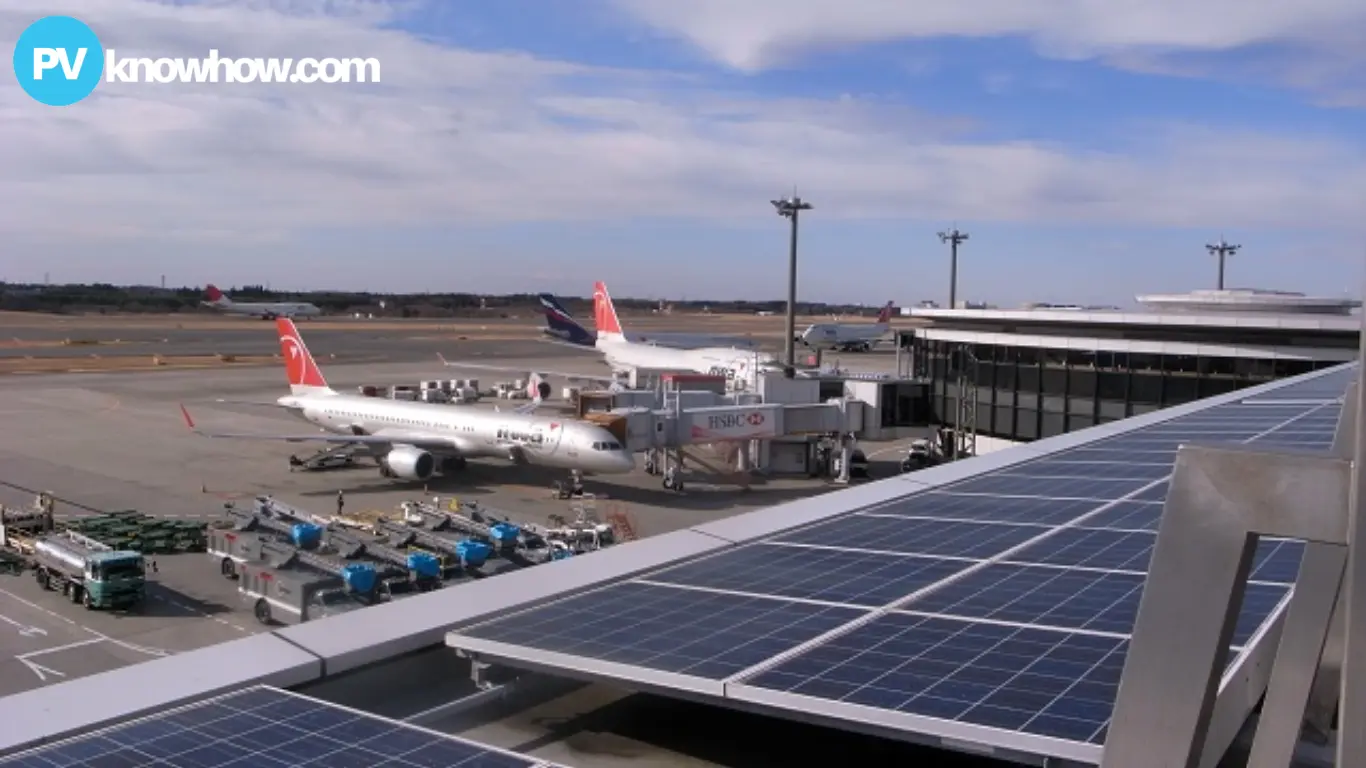The Airports Company of Zimbabwe (ACZ) is modernizing international airports by installing solar plants at three major locations. These plants will supply renewable energy to the airports and the national grid.
Solar Power Plants for Three Airports
Efforts are being enhanced to modernize Zimbabwe's international airports, making them smarter and more environmentally friendly. The Airports Company of Zimbabwe (ACZ) plans to construct solar power plants at three major airports: Robert Gabriel Mugabe International Airport, Joshua Mqabuko International Airport, and Victoria Falls International Airport.

Image Collected, Captured by Takashi M/Flickr
According to Zimbabwe Situation, these installations will supply renewable energy for airport operations and feed excess energy into the national grid, bolstering Zimbabwe's energy sustainability.
Mr. Tonderai Mangombe, the public relations and communications manager for ACZ, highlighted that the expansion of aviation activities throughout Africa has driven the need for infrastructure improvements.
As an example, upgrades at Robert Gabriel Mugabe International Airport have boosted its capacity from 2.5 million to 6 million passengers per year and included enhancements to passenger facilitation equipment.
"The airport capacity (RGM International Airport) has been enhanced from 2.5 million to 6 million people per year by installing new and sophisticated passenger facilitation equipment,” Mr Mangombe stated.
Contributing to the National Grid
The spokesperson emphasized ACZ's commitment to sustainability, outlining plans to install solar farms at the three major airports under its management. These solar farms aim to provide renewable energy for airport operations and contribute surplus energy to the national grid, thereby supporting the country’s overall energy sustainability goals.
"In line with this commitment, the company plans to install solar farms at the three major airports under its management. These solar farms will not only provide renewable energy for airport operations but also contribute surplus energy to the national grid, supporting the country’s overall energy sustainability,” he expressed.
Furthermore, ACZ is progressing with upgrades to Victoria Falls International Airport to enhance its capacity for handling and transporting goods, thereby supporting both local and international food logistics. These efforts align with the Zimbabwean government's directives for adopting renewable energy solutions, particularly in response to the anticipated rise in power demand driven by economic growth initiatives under the Second Republic.
"In addition, ACZ is making significant work on the Victoria Falls International Airport, which is nearing completion. This project is intended to increase the airport's ability to handle and transport food supplies, thereby helping both local and international food logistics,” Mr. Mangombe added.
Airport Carbon Accreditation
As part of its commitment to environmental stewardship, the Airports Company of Zimbabwe (ACZ) is seeking Airport Carbon Accreditation (ACA) — a globally recognized certification that acknowledges airports' efforts to manage and reduce carbon emissions. The accreditation process includes seven levels of certification, underscoring ACZ's dedication to sustainable development in the aviation sector.
"In addition, ACZ is actively aiming to achieve Airport Carbon Accreditation (ACA), a globally renowned certification that confirms an airport's commitment to monitoring and reducing its carbon emissions. This accreditation will further solidify ACZ's dedication to environmental stewardship and sustainable development in the aviation industry," stated Mr. Mangombe.
The development occurs as the Government has urged different organizations to transition to renewable energy. Large-scale miners — in particular — have until 2026 to establish their own power generation facilities.
Zimbabwe's installation of solar plants at major airports enhances operational efficiency and supports national energy sustainability goals. This initiative by the Airports Company of Zimbabwe (ACZ) reflects a proactive stance on environmental stewardship, aligning with the country's renewable energy objectives and reinforcing its position as a leader in eco-friendly aviation infrastructure.
